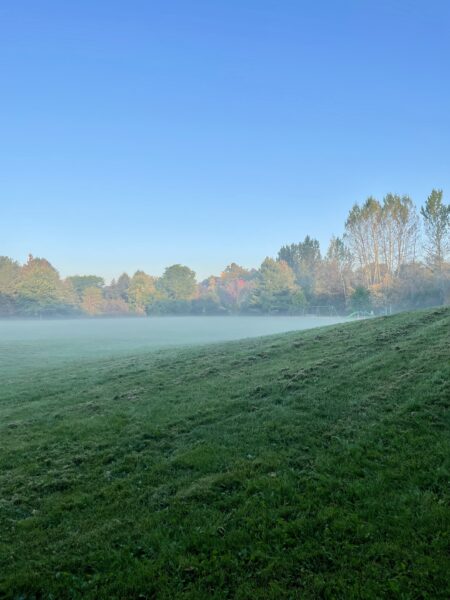
I made one crucial error when I was young: I believed writers only wrote when they were inspired. At the peak of my writing inspiration, I started new stories, sometimes writing 1,000 words in one go. If I wasn’t inspired, I didn’t write, plain and simple.
I rarely finished a story. The belief that you only work when you’re inspired stuck to me throughout high school and university. I had inspiration to start new projects, but I didn’t have the discipline to see most of them through.
It took several years of administration positions to learn the discipline needed to write regularly. Had anyone told me at the start of each position that I’d be answering at least 40 emails a day, entering 100 software purchases a week (including email conversations with customers), or processing 400 contracts a quarter, I would have treated those jobs like I treated each of my writing ideas: wait for inspiration to hit and then type like a cheetah running after its prey.
But I never saw those jobs that way. Instead, I saw them as a list of daily tasks I had to complete, and I ensured I did. I only realized later how much work I’d actually done when I was collecting data for my performance reviews.
Neil Gaiman’s Advice to Aspiring Writers on Brain Pickings reminded me how important it is to simply write each day. Writing inspiration is an awesome feeling. True writers, though, write on schedule, regardless of how inspired they feel on a given day. I had the same advice from Jean Little back in 1989 when she wrote back to me, and I’m certain almost all professional writers, famous or unknown, would say the same thing.
It’s like eating. You have to eat, otherwise you’ll die. Some days, you may spend an hour cooking a wonderful meal for yourself and loving every mouthful. Other days, you throw a frozen meal in the oven so you can do other things. Whether you spend lots of time on food prep or almost nothing, you still eat.
I’ve written about believing that every little bit helps. Even if you only take five minutes to write down a few more descriptors for your character or a few more ideas for your magazine article, do something every day. After three months, tally up what you’ve written. Your results might surprise you. But don’t wait for writing inspiration, because chances are, you’ll never finish what you started.

